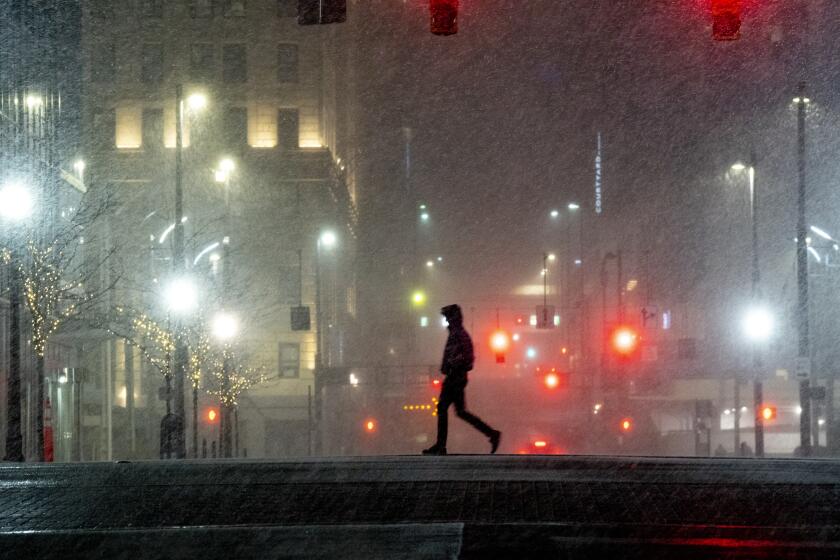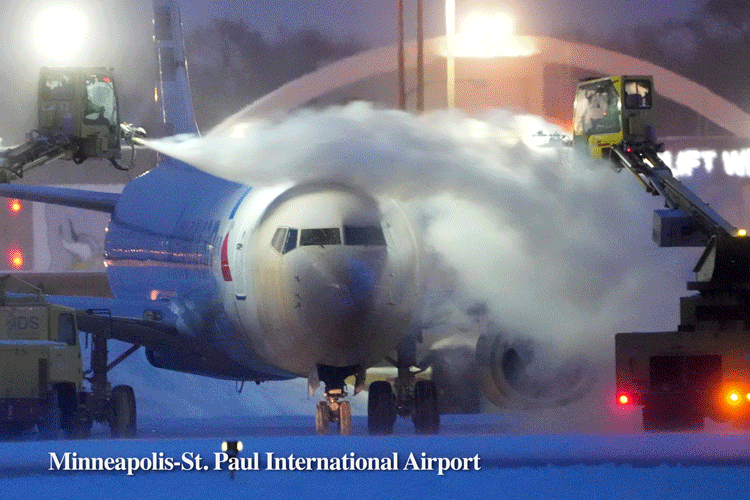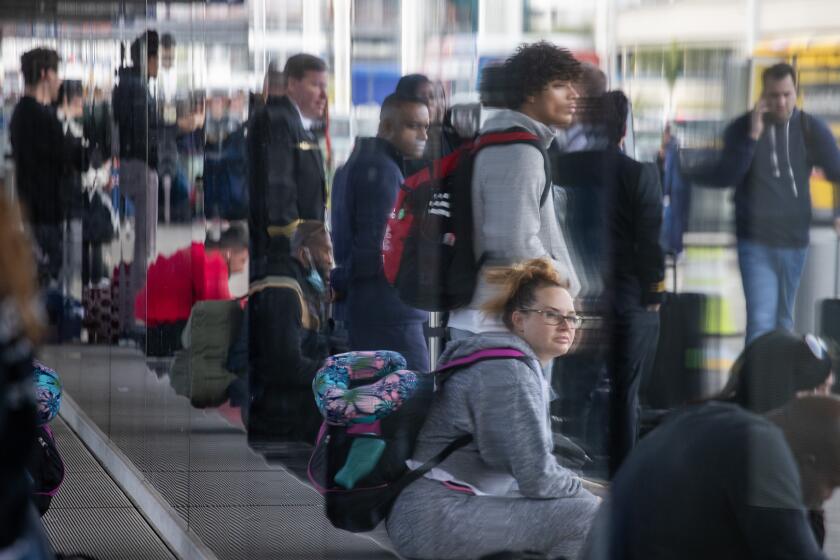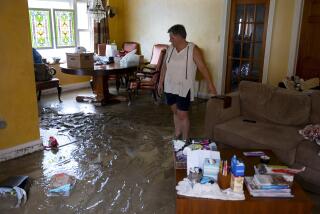Massive winter storm affects 60% of U.S. population, some with rolling blackouts and outages
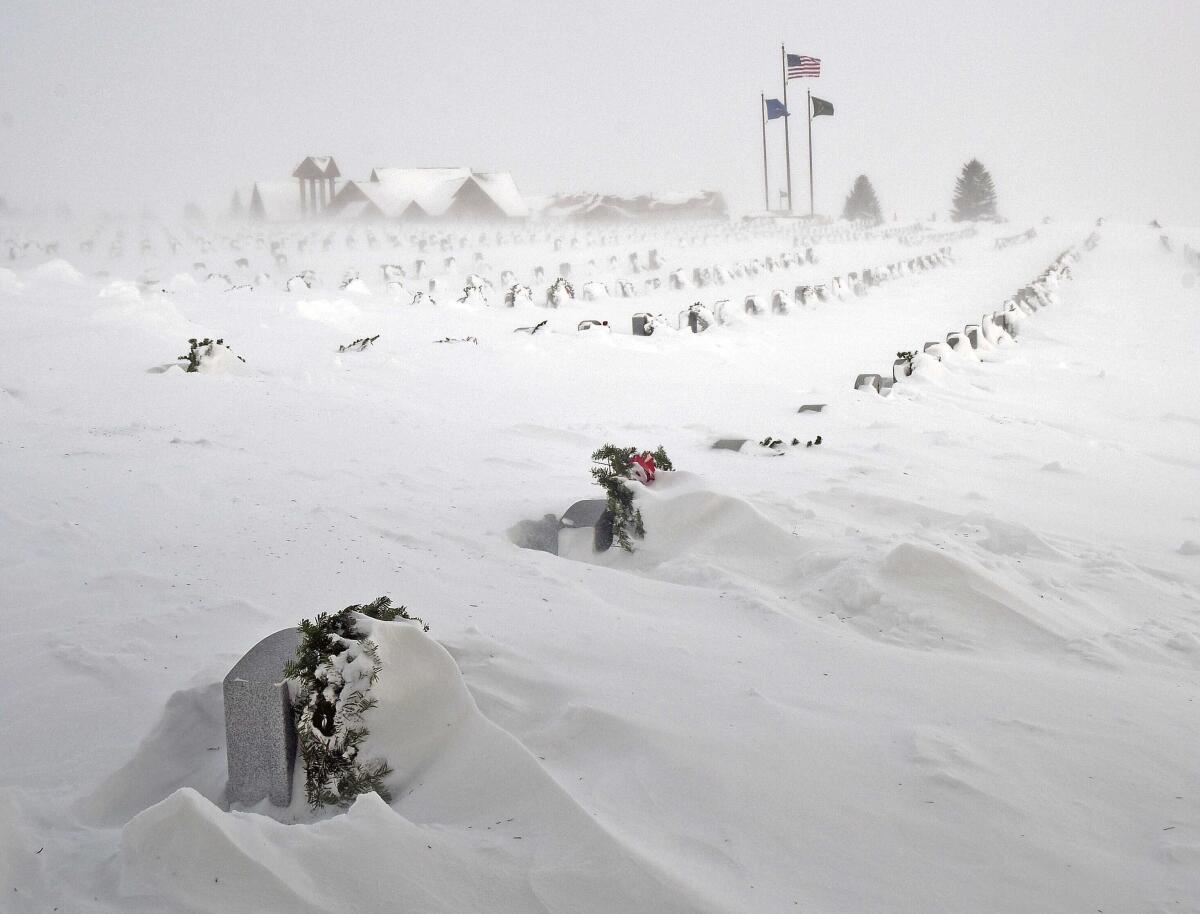
MISSION, Kan. — Tens of millions of Americans endured bone-chilling temperatures, blizzard conditions, power outages and canceled holiday gatherings Friday due to a winter storm that forecasters said was nearly unprecedented in its scope, exposing about 60% of the U.S. population to some sort of winter weather advisory or warning.
More than 200 million people were under an advisory or warning on Friday, the National Weather Service said. The agency’s map “depicts one of the greatest extents of winter weather warnings and advisories ever,” its forecasters said.
Power outages have left more than 1.4 million homes and businesses in the dark, according to the website PowerOutage, which tracks utility reports. The Tennessee Valley Authority, the nation’s largest public utility, ended rolling blackouts Friday afternoon but continued to urge customers to conserve power. In Georgia, hundreds of people in Atlanta and northern parts of the state were without power and facing the possibility of subzero wind chills without heat.
And nearly 5,000 flights within, into or out of the U.S. were canceled Friday, according to the tracking site FlightAware, causing more mayhem as travelers try to make it home for the holidays.
“We’ve just got to stay positive. Anger is not going to help us at all,” said Wendell Davis, who plays basketball with a team in France and was waiting at O’Hare airport in Chicago on Friday after a series of flight cancellations.
The huge storm stretched from border to border. In Canada, WestJet canceled all flights Friday at Toronto Pearson International Airport, beginning at 9 a.m., as meteorologists in the country warned of a potential once-in-a-decade weather event.
And in Mexico, migrants gathered near the U.S. border faced unusually cold temperatures as they awaited a U.S. Supreme Court decision on lifting pandemic-era restrictions that prevent many from seeking asylum.
High-pressure ridges and continental mountain ranges are helping protect the Golden State from the dangerous deep freeze.
Forecasters said a “bomb cyclone” — when atmospheric pressure drops very quickly in a strong storm — had developed near the Great Lakes, stirring up blizzard conditions including heavy winds and snow.
Multiple highways were closed and crashes claimed at least six lives, officials said. At least two people died in a massive pileup of about 50 vehicles on the Ohio Turnpike. A Kansas City, Mo., driver was killed Thursday when his car skidded into a creek, and three others died Wednesday in separate crashes on icy northern Kansas roads.
Michigan also saw several crashes, including one involving nine semitrailers.
Brent Whitehead said it took him 7.5 hours — instead of the usual six — to drive from his home near Minneapolis to his parents’ home outside Chicago on Thursday in sometimes icy conditions.
“Thank goodness I had my car equipped with snow tires,” he said.
Activists were rushing to get people without homes out of the cold. Nearly 170 adults and children were keeping warm early Friday in Detroit at a shelter and a warming center designed to hold 100 people.
“This is a lot of extra people,” but nobody was being turned away, said Faith Fowler, executive director of Cass Community Social Services, which runs both facilities.
In Chicago, Andy Robledo was organizing efforts to check on unhoused people through his nonprofit, Feeding People Through Plants. Robledo and volunteers build tents modeled on ice-fishing shelters, including a plywood subfloor.
“It’s not a house, it’s not an apartment, it’s not a hotel room. But it’s a huge step up from what they had before,” he said.
It’s a tale of sorts — a contrast of extremes.
In Portland, Ore., nearly 800 people slept at five emergency shelters on Thursday night, and homeless outreach teams fanned out to distributed cold-weather survival gear. Shelters called for volunteers amid high demand and staffing issues after employees were laid low by flu or respiratory symptoms or kept from work by icy roads, officials said.
DoorDash and Uber Eats suspended delivery service in some states, and bus service was disrupted in places like Seattle.
The power went out at Jaime Sheehan’s bakery in Maryland for about 90 minutes Friday, shutting off the convection oven and the mixer she needed to make butter cream.
“Thankfully, all of the orders that were going out today already finished yesterday,” she said a few moments before the power returned.
At about the same time, Corey Newcomb and his family were entering their sixth hour without power at their home in the small town of Phenix, Va.
“We are coping and that’s about it,” Newcomb said in a Facebook message.
South Dakota Gov. Kristi Noem said she was deploying the National Guard to haul timber to the Oglala Sioux and Rosebud Sioux tribes and to help with snow removal.
Photos capture scenes at Los Angeles International Airport as weather-related flight delays and cancellations make holiday travel difficult.
“We have families that are way out there that we haven’t heard from in two weeks,” said Wayne Boyd, chief of staff to the Rosebud Sioux president.
Fearing that some are running out of food, the tribe was hoping to get a helicopter Saturday to check on the stranded.
The Oglala Sioux Tribe, meanwhile, was using snowmobiles to reach members who live at the end of miles-long dirt roads.
“It’s been one heck of a fight so far,” said tribal President Frank Star Comes Out.
On the Pine Ridge Indian Reservation, Harlie Young was huddled with five children and her 58-year-old father around a wood stove as 12-foot drifts of snow blocked their house.
“We’re just trying to look on the bright side, that they’re still coming and they didn’t forget us,” she said Friday as the temperature plunged.
The weather service is forecasting the coldest Christmas in over two decades in Philadelphia, where school officials shifted classes online Friday.
Atop New Hampshire’s Mt. Washington, the tallest peak in the Northeast, the wind topped 150 mph.
In Boston, rain combined with a high tide, sending waves over the seawall at Long Wharf and flooding some downtown streets. The weather was so bad in Vermont that Amtrak canceled service for the day, and nonessential state offices closed early.
“I’m hearing from crews who are seeing grown trees ripped out by the roots,” Mari McClure, president of state utility Green Mountain Power, said at a news conference.
Calling it a “kitchen sink storm,” New York Gov. Kathy Hochul declared a state of emergency. In parts of New York City, tidal flooding inundated roads, homes and businesses Friday morning, and police trudged through knee-deep water in Queens to pull stranded motorists to safety.
In Iowa, with sporting events called off, sports broadcaster Mark Woodley became a Twitter sensation after he was called on to do live stand-ups in the wind and snow. By Friday evening, a compilation of his TV bits had been viewed over 6 million times on Twitter.
“I’ve got good news and I’ve got bad news,” he told an anchor. “The good news is that I can still feel my face right now. The bad news is, I kind of wish I couldn’t.”
More to Read
Sign up for Essential California
The most important California stories and recommendations in your inbox every morning.
You may occasionally receive promotional content from the Los Angeles Times.
